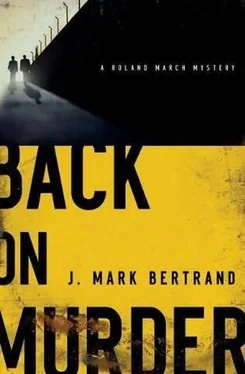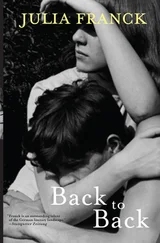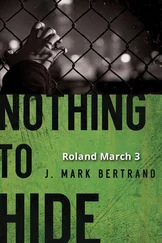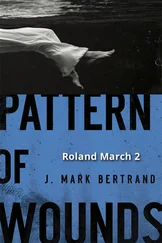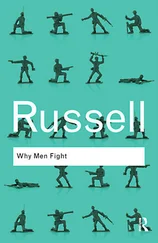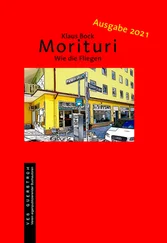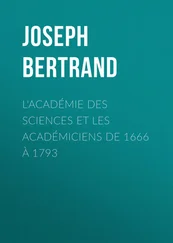Almost.
Informing the loved ones of a homicide victim is hard enough, but at least there’s a format to follow. People react in different ways, from unsettling stoicism to rage to something much worse, the kind of outright wailing despair that precludes all consolation. Still, the detective’s script remains constant. We offer our condolences, even a shoulder to cry on, but make no mistake. We’re here for information. We have a job to do.
In Cavallo’s role, the dynamic is utterly different, because her appearance offers something a homicide detective’s never does. Hope. It’s no wonder she pauses at Donna Mayhew’s door, working up the courage to knock.
“Come on in,” a voice says from inside.
We enter a vanilla-scented, lamp-lit room with sponge-painted walls and fancy oversized couches upholstered in microsuede. The chair behind the desk is empty. Instead, Donna Mayhew sits in an armchair near the door, a mug of tea steaming in her hands.
“This is Roland March,” Cavallo says. “He’s another one of our 69 detectives.”
Not a homicide detective, because that would get things off on exactly the wrong foot.
She rises to greet us, her hands still simmering from the warm mug. If a police artist aged Hannah Mayhew’s photo to show the most flattering outcome of an additional twenty years of life, the result would be standing before me. A compact, radiant woman, maybe five foot three, her beauty undimmed by her obvious stress, dressed in jeans and a frilly, netted top. Her thick blond hair pulled back into a ponytail, her face looking sober and scrubbed.
“Has something happened?” she asks.
Cavallo shakes her head. “Nothing like that.”
Mrs. Mayhew presses a hand to her chest, deflating with relief. “You scared me on the phone. I’ve been trying to stay strong.”
“I’m sorry.” Cavallo touches the woman’s elbow lightly. “Do you mind if we have a seat?”
“Not at all.”
She motions us onto a nearby couch, resuming her place. On the coffee table between us, next to her tea, a fat Bible lies open, its crinkled pages bright from highlighting. A block of pink. A section of yellow. Tiny handwritten notes creeping into the margins.
That book, it gives a physical form to the woman’s hopes. I can imagine her, stifling back the swirl of fear, forcing herself to focus on the words, reading and underlining anything significant, any stray phrase that can be interpreted as a message. I want to look away, but I can’t. Leaving the book open, it’s like she’s left herself sadly exposed. An image of my wife, Charlotte, flashes, one I long ago weighted and cast into the deepest waters of memory, only now it’s slipped the chain and come back.
“Tell me what’s happened?”
“I already have.”
“I don’t remember. Tell me again.”
“I can’t. I really can’t.”
Donna Mayhew notices me looking at her Bible. “I thought about canceling the study today, but to be honest I really needed it. Ironically, we’re in the book of Job. ‘The Lord gives and the Lord takes away. Blessed be the name of the Lord.’ I’m trying to live that way, but you know, it isn’t easy.”
“No, it isn’t,” Cavallo says, giving her ring a nervous twist.
The two women share a look.
“You’re doing everything you can,” Mrs. Mayhew says.
Cavallo leans forward. “That’s why I’m here. There’s something I’d like to ask – ”
Before she can finish, there’s a knock at the half-open door. A man in his mid-twenties enters, stopping as soon as he catches sight of us. He mumbles an apology and turns to go, but Mrs. Mayhew calls him back.
“What is it, Carter?”
He looks like he’s stepped out of a clothing catalog for the terminally hip. A line of fuzz under his bottom lip, his hair lovingly spiked, wearing expensively demolished black jeans and a brown Starbucks T-shirt stretched tight across Bally Fitness pecs. Only on closer inspection, as he advances tentatively into the room, the coffee-shill mermaid turns out to be a thorn-crowned Christ, extending his pierced hands, bracketed by the motto sacrificed for ME.
A piece of paper hangs limply from his hand.
“Is that the new one?” Mrs. Mayhew asks, taking it from him.
She inspects the page, then passes it to Cavallo. The familiar photo of Hannah, a toll-free tip number, a reward offer for information leading to her return. I wave away my opportunity for a closer look, so Cavallo hands the flyer back to the man. Before he can go, Mrs. Mayhew stops him again.
“Where are my manners? Detective Cavallo, this is our youth pastor, Carter Robb. He and Hannah are really close. Carter, this is the detective leading the investigation.” She turns to me. “And I’m sorry but I’ve already forgotten your name.”
“Roland March.”
I stand, moving around the coffee table to shake the guy’s hand. As strong as he looks, he has a weak handshake. I can feel him trembling. He won’t make eye contact, either. The moment I let go of his hand, he backs out the door saying he has more copies to make.
I give Cavallo a quizzical look. “He seemed a little on edge.”
Mrs. Mayhew smiles wanly. “We all are, Detective. This is especially hard on Carter because of their friendship. Hannah has been a real ally of his in the youth group since he first came here.” The words are sympathetic, but there’s something stiff about the delivery, running through the lines, not putting much feeling behind them. “It’s hard on everyone, of course.” She leans Cavallo’s way. “Have you heard? They’re trying to get me to go on TV.”
“You should,” I say. “It can’t hurt.”
Cavallo gives me a vigorous sandpapering with her glare, but I ignore her. Whether she wants to be in the public eye or not, what mother faced with the prospect of never seeing her daughter again raises scruples like this? She should be desperate to cooperate. Anything that helps the cause, no matter how peripherally, is worth a shot. I’m not about to say all this, but hopefully the way I’m looming over them, hands on hips, gets the gist across.
“Do you have children, Detective?” she asks.
I glance down. “No.”
“My daughter, she grew up without her father. He died when she was still just a baby, so she only knows him through videotapes and other people’s stories.” Her eyes shine in the lamplight. “There was this thing she used to do. She’d come to me and say, ‘Mama, I remembered something about Daddy.’ And she’d tell some elaborate story about how she and her dad went to the park together, or ate their favorite ice cream, things like that. She’d remember the time he brought home a puppy. The most fanciful things – she has such an imagination – and then she’d say, ‘You remember that, don’t you, Mama?’ or ‘That really happened, didn’t it?’ Always wanting me to confirm the stories she made up, so they’d feel real.”
“And did you?”
“Sometimes. The thing is, I was always afraid of what she might hear. When her daddy died, people told all kinds of stories. He was kind of famous in certain circles; he’d touched a lot of lives. Since his body was never found, there were people who said he wasn’t really dead. Either he’d faked it to get out of some kind of financial trouble, or he’d gone undercover as part of his ministry.”
“Undercover.”
“Silly, I know. But there was a missionary to Bolivia, a really sweet man, a friend of Peter’s from way back, and he came home on furlough and told me people down there had reported seeing Peter. He would turn up at evangelistic rallies, they said, and lay hands on people, healing them.”
“Did you believe that?” I ask.
“My husband died. All the stories never changed that. But I lived in fear that Hannah would get hold of them somehow, and convince herself they were true.”
Читать дальше
